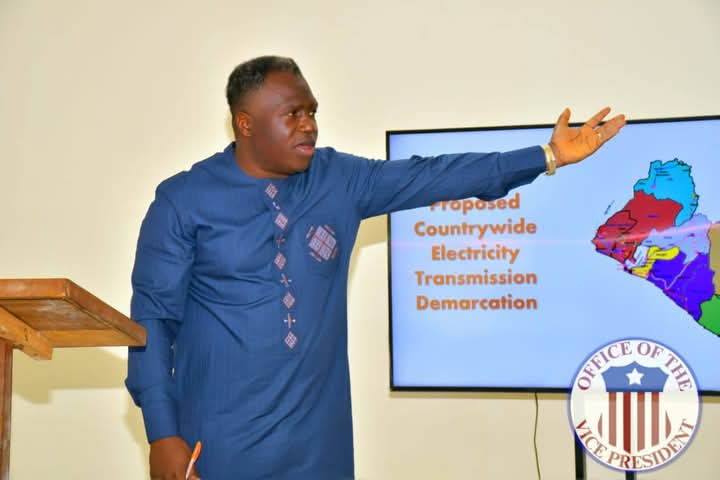Liberia’s chronic electricity deficit poses a significant threat to its socio-economic stability, potentially igniting civil unrest that could destabilize the government, according to Vice President Jeremiah K. Koung. The lack of reliable power contributes directly to the high cost of living, hindering economic progress and impacting essential services such as healthcare. Koung stressed the urgency of the situation, highlighting the growing public discontent expressed through social media and radio discussions, where the lack of electricity has become a recurring and increasingly serious point of contention. He warned that this simmering frustration could easily escalate into widespread protests capable of toppling the government. While acknowledging the efforts of international partners, Koung emphasized the need to prioritize power generation over mere access expansion.
The Vice President underscored the critical role of electricity in national development, asserting that it is as fundamental as agriculture, a key component of the government’s “ARREST” agenda. He argued that agriculture itself cannot flourish without a stable power supply, highlighting the interconnection between various sectors of the economy. Electricity, along with infrastructure like roads, forms the bedrock of Liberia’s growth potential. Koung illustrated the tangible benefits of reliable power, citing food preservation and healthcare as prime examples. With electricity, families can store food longer, reducing daily market trips and associated costs. In healthcare, diagnostic equipment and life-saving procedures depend on uninterrupted power supply, a lack of which can have fatal consequences.
Koung expressed reservations about the timeline of the “Vision 2030” plan proposed by development partners, considering it too distant to address the immediate needs of Liberians. He argued that the protracted timeframe fails to account for the escalating public impatience and the desperate need for swift, transformative change. While appreciating the proposed renewable energy initiatives, including solar farms and the expansion of the Mount Coffee hydro plant, he insisted on prioritizing immediate solutions to the power generation deficit. These projects, while valuable in the long run, do not address the pressing need for a consistent and reliable power source to mitigate the immediate challenges faced by the population.
The Vice President emphasized the tangible impact of reliable electricity on the daily lives of Liberians. The lack of power forces many households to purchase and cook food daily due to the inability to refrigerate leftovers, contributing to higher living expenses. A stable power supply would alleviate this burden, allowing families to store food safely and reduce their daily expenditure on groceries. This, in turn, would free up resources for other essential needs, improving overall quality of life and boosting economic activity. Koung’s argument underscores the ripple effect of electricity access, impacting not only individual households but the broader economy.
Furthermore, the Vice President highlighted the perilous consequences of power outages in healthcare settings. He painted a stark picture of life-threatening situations where power failures during medical procedures could lead to fatalities. This precarious dependence on unreliable electricity exposes a critical vulnerability in Liberia’s healthcare system, jeopardizing patient safety and undermining the efficacy of medical interventions. Koung’s emphasis on power generation underscores the vital need for a stable electricity supply to ensure the functionality of essential services and protect human lives.
In conclusion, Vice President Koung’s pronouncements serve as a stark warning about the critical state of Liberia’s power sector. The lack of reliable electricity is not merely an inconvenience; it is a fundamental obstacle to economic development, a major contributor to the high cost of living, and a potential catalyst for social unrest. His urgent call for prioritizing power generation underscores the need for immediate and decisive action to address this pressing issue. The government, in collaboration with international partners, must accelerate efforts to provide a stable and affordable electricity supply to avert a looming crisis and pave the way for sustainable development and improved living standards for all Liberians. The consequences of inaction are dire, potentially jeopardizing not only the government’s stability but also the lives and well-being of its citizens.














